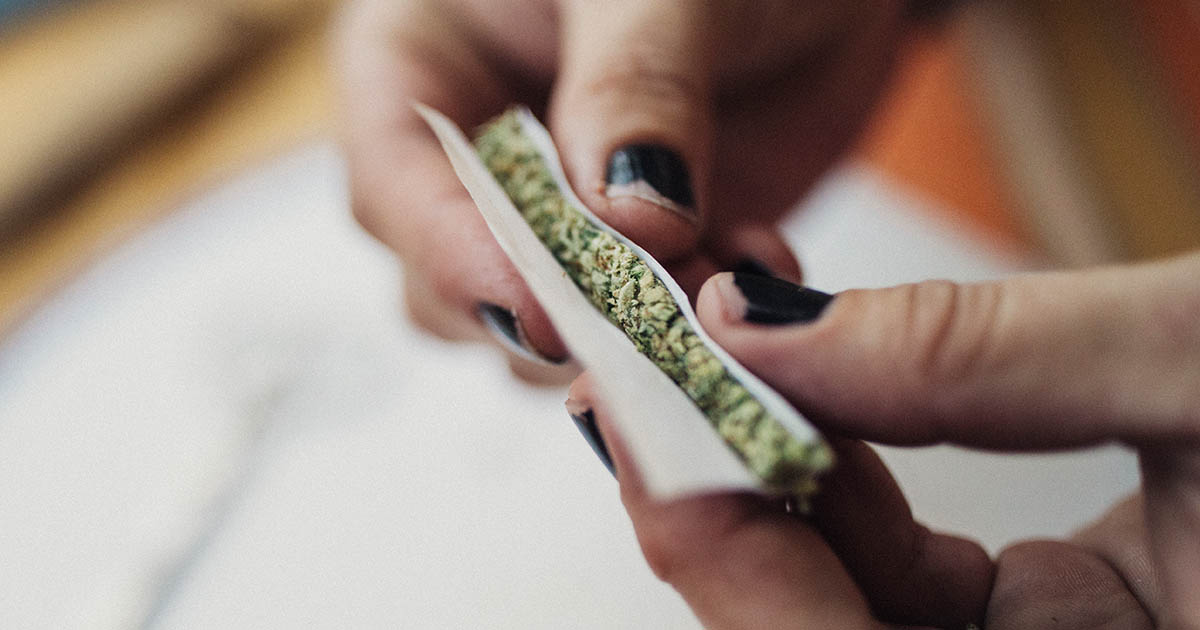Is Marijuana Addictive?
Many groups who favor marijuana legalization argue marijuana isn’t addictive, but research has shown that it can be. In fact, research from the National Institutes of Health shows 30 percent of people who use marijuana can become addicted, and teens who use marijuana are more likely to develop an addiction than adults.
What Is Marijuana?
Marijuana goes by many names – weed, pot, grass, Mary Jane and many other slang terms. It looks like a greenish-gray mixture of dried flowers.
People who smoke marijuana use hand-rolled cigarettes or water pipes. It can also be brewed as a tea or mixed into foods, including cookies and brownies.
The primary psychoactive ingredient in marijuana is delta-9-tetrahydrocannabinol (THC). THC is responsible for the intoxicating effect that marijuana users seek out. THC is found in leaves and buds in the female cannabis plant. The cannabis plant contains at least 500 other chemicals, with many related to THC, collectively called cannabinoids.
Upon inhalation, THC passes from the lungs to the bloodstream and is carried to the brain. It acts on specific parts of the brain, causing a high. Certain parts of the brain that influence your memory, coordination, sensory and perception get the most exposure to THC. That is why these functions are adversely affected by marijuana use.
The strength of the high from marijuana depends on the potency of the THC. THC content in marijuana has been increasing over the past 30 years. There also many other chemicals found in marijuana and many of these are harmful to your health, these in addition to the many types of THC already in marijuana.
Understanding Marijuana Addiction
From a diagnostic and treatment perspective, someone can be physically dependent on a drug, but not psychology addicted.
Being physically dependent on a drug means you struggle with tolerance and withdrawal. Physical tolerate is the effect of depending on more and more of the drug to get pleasure from it while withdrawal is what happens when you don’t get the drug.
While people who are physically dependent on a drug need help, they are not psychology addicted. What that means is that they do not give the drug high priority in their lives, over family, friends, social activities and work obligations.
The distinction between physical dependency and psychological addiction is important because people think marijuana isn’t addictive due to mild withdrawal symptoms, especially compared to other drugs. A good example of this distinction comes from Dr. J. Wesley Boyd, writing for Psychology Today.
Dr. Boyd writes that some people with marijuana addiction will display signs characteristic of psychological addiction. He shares the example of a male in his 20s, who works a fulltime job, and who smokes several times a day. Even though the man wants to stop using marijuana, he is psychology addicted. The drug has taken over his life, and he is unable to stop without professional treatment.
As with the example, marijuana becomes an addiction when someone cannot stop using it even though it is interfering with many aspects of their life. The number of people addicted to marijuana is currently unknown, but at least one study from 2015 finds that 4 million Americans could meet the criteria for marijuana addiction.
Marijuana Addiction Signs and Symptoms
The occasional use of marijuana may not lead to abuse or addiction. But there is still the potential for addiction and marijuana does have harmful effects.
Signs of Marijuana Use
Early on, the drug user and loved ones likely would not notice a problem but over time, physical dependence and addiction eventually take over.
Immediate physical symptoms of marijuana use are:
- Dizziness
- Bloodshot eyes
- Short-term memory loss
- Severe anxiety, panic and/or paranoia
- Hallucinations
- Low reaction time
- Increased heart rate
- Coordination problems
Long-Term Use and Addiction
In addition to addiction, marijuana has been associated with long-term problems, including, but not limited to:
- Decline in IQ, especially in young people
- Poor school or job performance
- Impaired thinking and learning
- Lower life satisfaction
- Relationship problems and/or domestic abuse
- Financial problems
- Job loss
- Increased risk of stroke or heart attack
Although mild, marijuana withdrawal can cause the following symptoms:
- Irritable mood
- Nervousness and anxiety
- Sleep problems
- Marijuana cravings
Withdrawal symptoms don’t require medical or psychological intervention, but if someone is showing signs of significant distress, an intervention might be necessary.
It is important to note people who are psychologically addicted to marijuana will continue to use it despite all the problems it brings to their lives. They will also choose to socialize in ways that allow the drug to be part of their lives to the point it is the most important part.
The user will deny he or she has a problem and will do everything to keep loved ones from intervening. This is the point where loved ones start to think about getting the person addiction treatment.
Who Can Become Addicted?
Numerous studies show addiction is related to poor coping and genetics. The fact is anyone can become addicted to any drug or substance (like cigarettes or alcohol.) After all, not everyone with a family history of addiction develops an addiction. Neither does everyone who is struggling with life challenges.
While certain groups of people have a higher risk for addiction, anyone, regardless of their background, can become addicted.
Marijuana is the most used drug in the world and research by the National Institutes of Health shows that nearly 9.5 million people in the United States use it. Young adults – ages 18 to 29 – are at the highest risk for use and addiction.
People who use marijuana to manage anxiety, depression and/or regulate mood are also at risk. Anyone who is self-medicating is just as prone to addiction.

